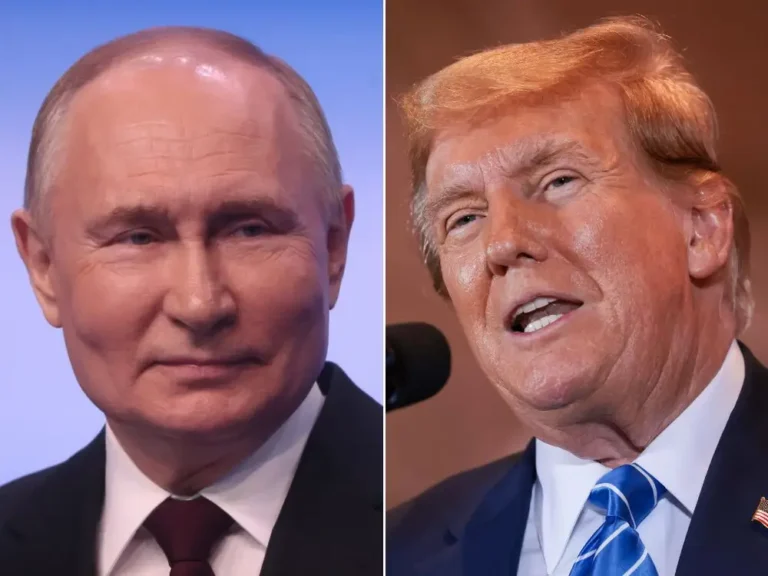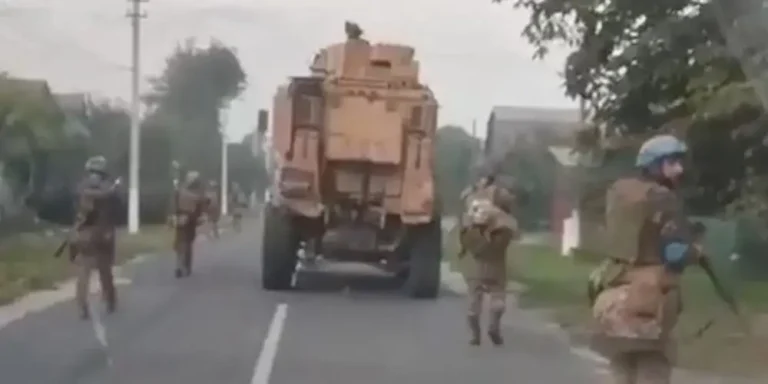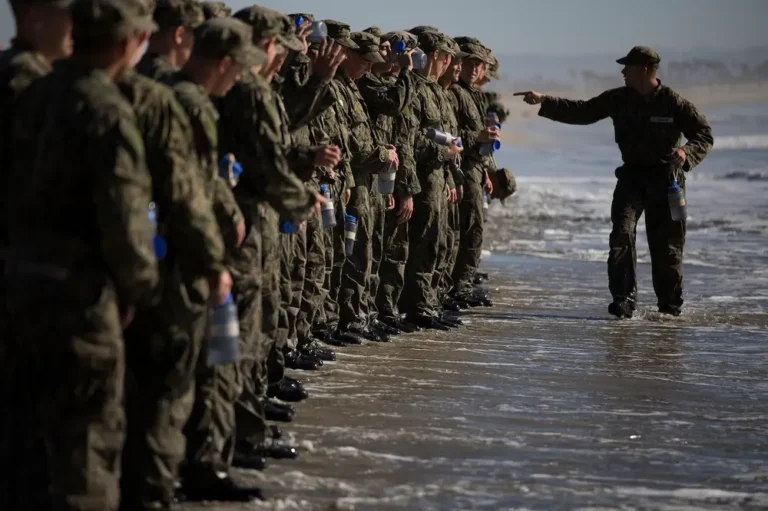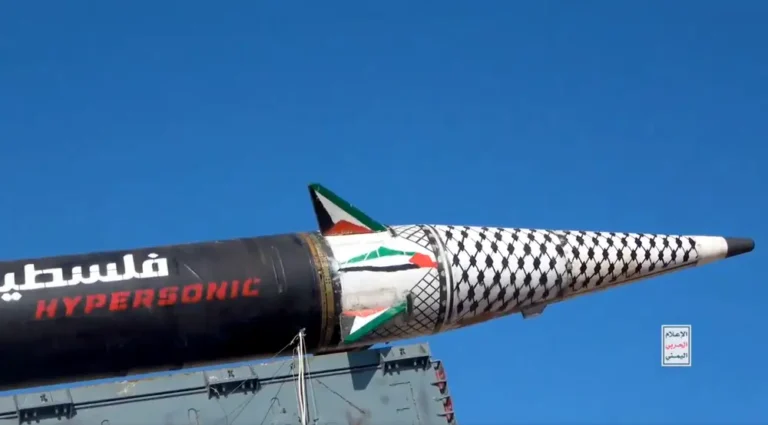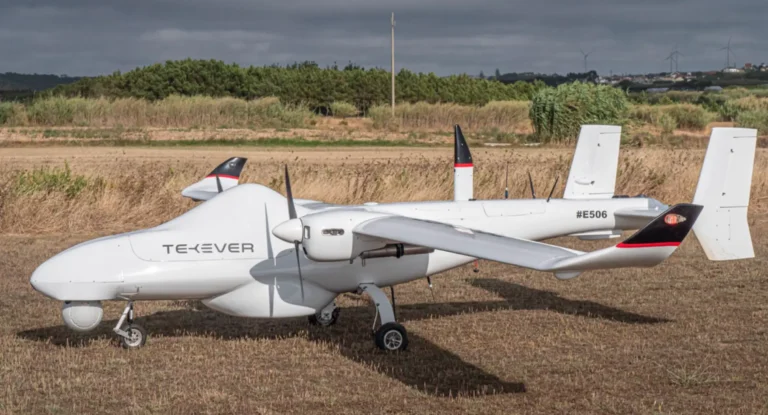Russia’s messy response to Ukraine’s invasion is exposing the weaknesses still plaguing its army
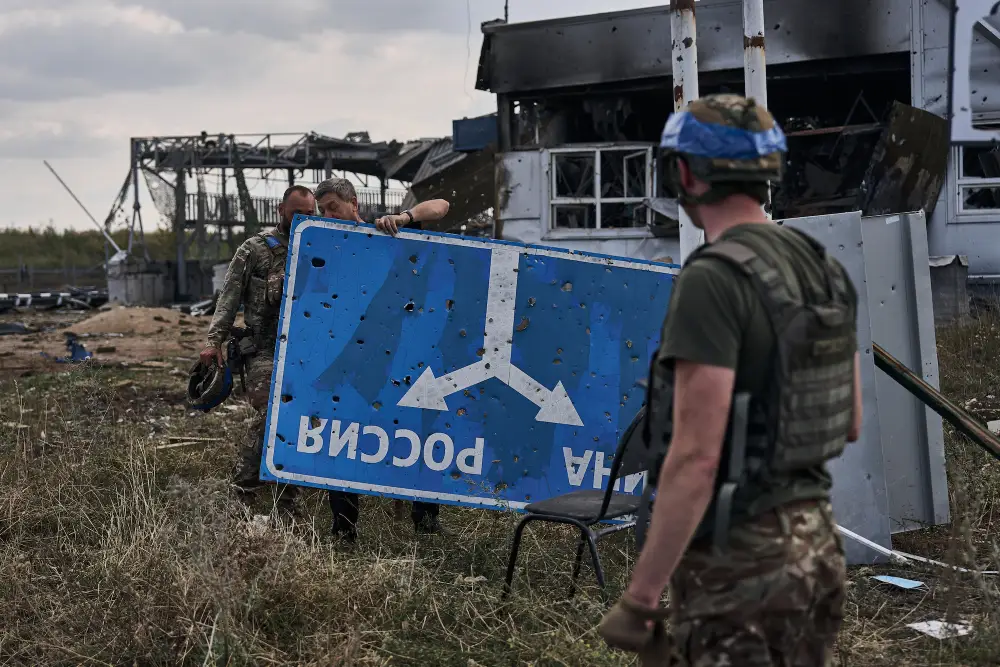
A destroyed border checkpoint with the sign “Ukraine” and “Russia” on August 16, 2024 in Sudzha, Russia.
Russia’s jumbled response to Ukraine’s invasion of its Kursk region indicates that its military is still suffering from a critical weakness, warfare experts told B-17.
Ukraine launched an incursion into Kursk on August 6 and by Tuesday had taken almost 500 square miles of territory, according to the country’s army chief. That’s more territory than Russia has managed to take in Ukraine this year.
The development has been humiliating for Russia, according to George Barros, a Russia analyst at Washington DC-based think tank the Institute for the Study of War.
He said Russia’s response only compounds that, highlighting a longstanding issue with command and control with which Russia has struggled.
Bungling the Kursk response
Russia’s late response to Ukraine’s attack was to put the FSB — Russia’s primary security and intelligence agency — in charge of a host of other groups.
The move indicates Russia has a “very unorthodox, untested command and control structure that’s going to be responding to this,” Barros said. Russia has for a long time had issues with command and control, which is key to directing military, security, and emergency response forces effectively.
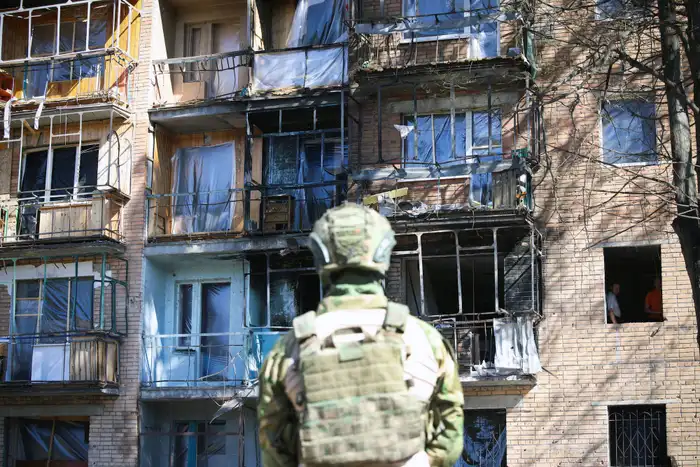
A local volunteer looks at a building damaged by Ukrainian strikes in Kursk on August 16, 2024, following Ukraine’s offensive into Russia’s western Kursk region.
He noted that even in its invasion of Ukraine, which was planned in advance and where its military forces are organized in “a very conventional and orthodox way,” Russia’s command and control has been “horrific and very ineffective.”
Russia has faced criticized for its poor command and control structures, which often see it refuse to delegate responsibility like Western armies do, resulting in a slow and immobile force.
The problem has been on display throughout the war in Ukraine, where the Russians have been slow to react to combat developments and even brought many commanders close to the fighting, where they were then killed.
Warfare experts have repeatedly pointed to critical command and control problems as to why Russia’s ground forces did not make good progress at the beginning of its invasion.
And now, in Kursk, Barros said, “with this even more convoluted situation that they’re going into, I have remained very skeptical of the Russian’s ability to effectively marshal all these disparate forces. And I think it bodes poorly for the effectiveness of the Russian response.'”
Rajan Menon, a senior research scholar at Columbia University’s Saltzman Institute of War and Peace Studies, said Ukraine has been able to take advantage of Russia’s shortcomings by fighting differently.
“The Russians have a very centralized conception of warfare,” he said, adding that “the Ukrainians have delegated a lot of authority to local commanders, and they have highly mobile troops operating on multiple fronts.”
And “it’s been a very difficult thing for the Russians to figure it out because they didn’t expect anything like this,” he said.
While it’s unclear how this complex scenario will end, Menon said he thinks “the key point to bear in mind is the very fact that this could have happened at all. This is astonishing.”
A slow and complicated reaction
Reports have suggested Russia’s high command ignored intelligence about a Ukrainian troop buildup. Ukrainian troops said they were able to enter Kursk easily, and warfare experts said Ukraine was able to take advantage of dysfunction in Russian military leadership.
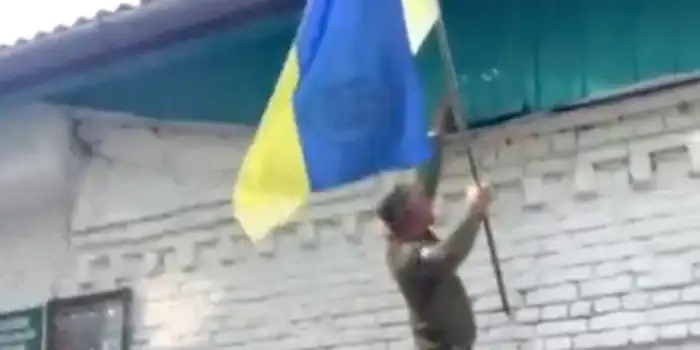
A Ukrainian soldier raises a Ukrainian flag in the village of Guevo in Russsia’s Kursk region.
Barros noted that Russia’s response “did not happen right away. It took many days.”
That early reaction was small and involved inexperienced troops, which did little to slow Ukraine down. Russian President Vladimir Putin took days to announce a military response.
Menon said Putin appeared to have been “caught completely flatfooted.” He described Russia’s response as “some combination of arrogance and incompetence rolled into one.”
That eventual response was the FSB being put in charge, with involvement from Rosgvardia (Russia’s national guard), some troops redeployed from Ukraine, conscripts, and special forces troops.
ISW said in an update on August 20 that Russia’s response to the invasion of Kursk was being hampered because of “complex and overlapping responsibilities and the seemingly ever-growing list of actors the Kremlin has tasked with responding to the Ukrainian incursion.”
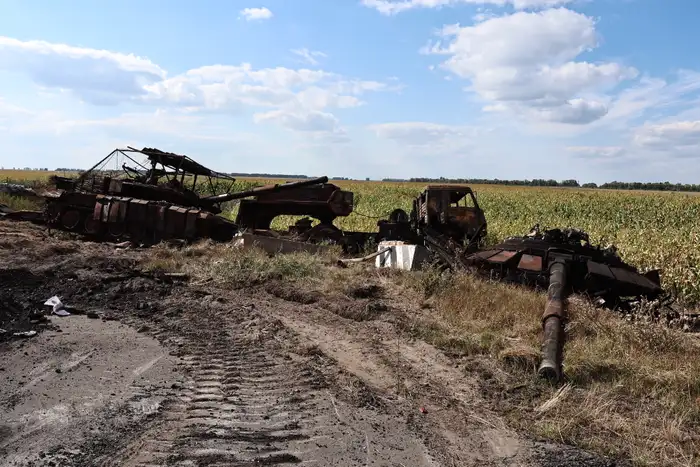
A destroyed Russian tank outside Ukrainian-controlled Russian town of Sudzha in the Kursk region.
Barros said that putting the FSB in charge was “pretty surprising” and said it would make more sense for the army to be in charge.
He said the FSB “doesn’t have it in its mandate, nor does it have the experience of creating a joint headquarters for responding to a large-scale adversary combined arms operation.”
Trying to get so many different groups to work together will be a challenge for it, Barros said. He said that the FSB will likely have “a very challenging time working out the command and control for all of the disparate different cats and dogs that are being cobbled together to respond to the Ukrainian incursion.”
Barros said that the different groups don’t all have a history “in dealing with combined arms operations. They don’t have a history of working together at scale in this sort of context.” He added that “many of them don’t have it in their capabilities or mission to be able to do the kind of attack that the Ukrainians are putting forward.”
Even with Russia’s response in action, Ukraine’s troops are still advancing into Kursk, although at a much slower rate as resistance builds, even amid Russia’s poor reaction.
Russia is downplaying
Putin, meanwhile, is downplaying Ukraine’s invasion, describing it as a terrorist attack.
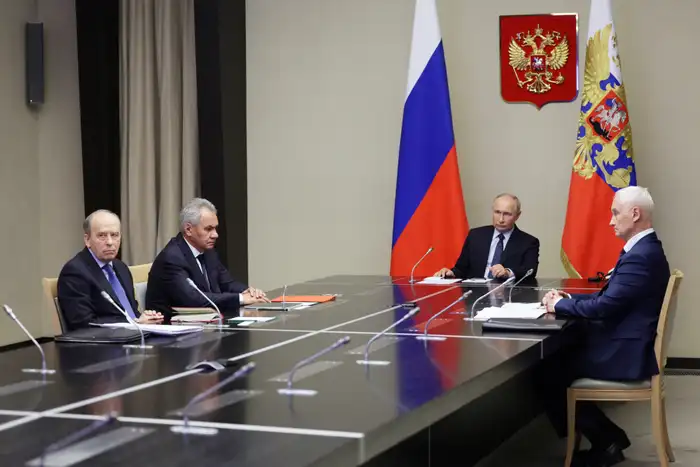
Russian President Vladimir Putin sits with defense officials — Director of the Federal Security Service (FSB) Alexander Bortnikov, Security Council’s Secretary Sergei Shoigu, and Defence Minister Andrei Belousov — at a meeting about Ukraine’s incursion into the Kursk region on August 7, 2024.
Barros said that Putin has not taken a stronger step, like declaring martial law, as he wants to minimize political risk to himself. Throughout Putin’s invasion, which began in February 2022, Putin has repeatedly made “militarily stupid” decisions for political reasons, he said.
He argued that taking stronger action “would do great damage to Putin’s decades-long strategic effort to basically rebuild Russia’s prestige, put forward the narrative that under Putin’s leadership, Russia has become sort of another great world power.”
Instead, he is downplaying it instead of “admitting that this is the “first foreign military operation within Russian soil since World War II,” an obviously serious development.
Putin wanted to “maintain the desired PR optics of everything’s fine, everything’s under control, we’re not going to mobilize the population,” Barros said.
And that has been a common trend. Russia has not conducted a large-scale mobilization since late 2022, and that round was met with thousands of young Russians fleeing the country. The UK Ministry of Defence said last year that the Kremlin was aware such a move is unpopular and could have political consequences.
Despite the mess in Kursk, Russia is still pushing forward and gaining territory in Ukraine’s east. For now, it has been reluctant to pull many troops from those areas.

